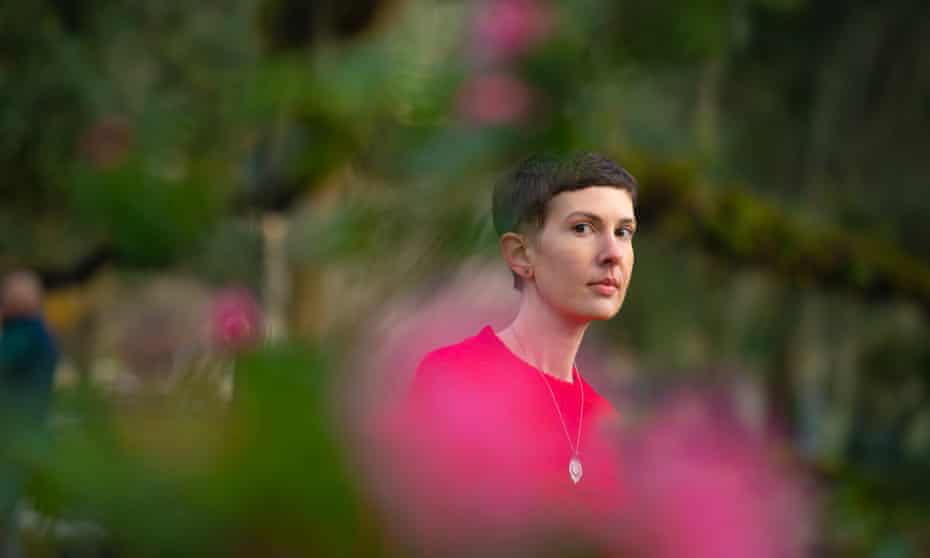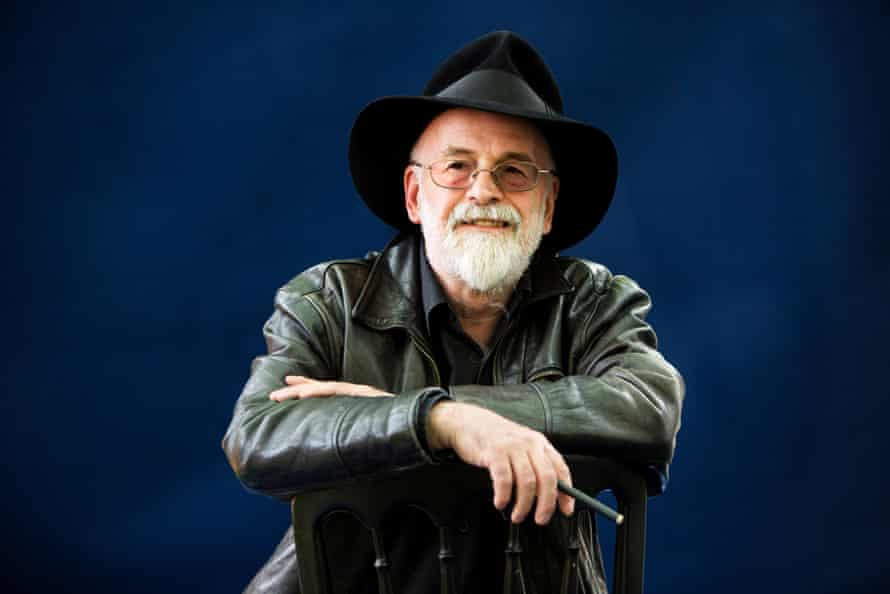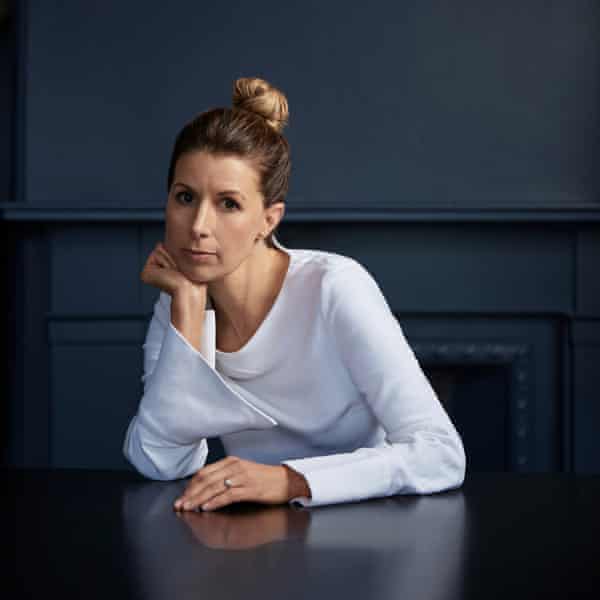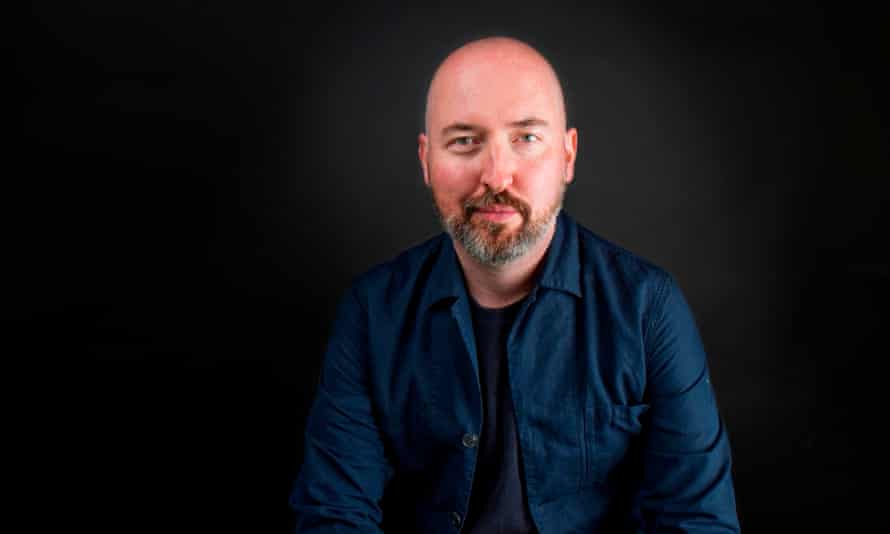Lenore Taylor: The Rain Heron by Robbie Arnott
Text Publishing
This book transported me away from the pandemic into a totally absorbing allegorical world. It seems post-apocalyptic, but the story is not about whatever happened to cause the societal and environmental breakdown; it’s about the internal world of the characters, the acts of brutality they commit to survive and the survival of their humanity.
For more: In brief: The Rain Heron; One Long and Beautiful Summer; The Nickel Boys – review
Naaman Zhou: Pachinko by Min Jin Lee
HarperCollins
A friend of mine refers to reading this book as becoming “Pachinko-pilled”. Addictive is too flimsy a word. Galactic in scope, written in a voice almost like myth, Min Jin Lee’s masterpiece becomes your world for the time you read it.
Me and my partner read it earlier this year, and began setting aside hours every night for “Pachinko-time”: just sitting there in silence taking it in. Even pre-lockdown, it’s the kind of book that makes you wave away other distractions. Crucially, it also teaches you about the history of Asia, the differences between Japan and Korea, and destroys any conceptions of them as being homogenous.
For more: Pachinko by Min Jin Lee review – rich story of the immigrant experience
Alyx Gorman: No One is Talking About This by Patricia Lockwood
Bloomsbury
 ‘The most effective artwork about being online I’ve ever encountered’: Patricia Lockwood, author of No One is Talking About This. Photograph: Artem Nazarov/The Guardian
‘The most effective artwork about being online I’ve ever encountered’: Patricia Lockwood, author of No One is Talking About This. Photograph: Artem Nazarov/The Guardian
Social media timelines are built on an addictive mechanic of unpredictable reward. Refreshing them brings a stack of garbage for every glimmer of gold. Lockwood’s book achieves what no algorithm can: quick hits of brilliance with no trash. The first half is compulsively scrollable – funny, weird and poetic, often all at once. Then the bottom falls out and the plot and prose deepen. It’s the most effective artwork about being online I’ve ever encountered. Much like the internet, it’s easy to lose hours with it. But unlike the internet, these are hours you won’t regret.
For more: No One Is Talking About This by Patricia Lockwood review – life in the Twittersphere
Bridie Jabour: Intimacies by Lucy Caldwell
Allen and Unwin
I’m not usually a short story reader, but I was so riveted I couldn’t go to bed. Lucy captures something very specific about womanhood for me, and the moments of total terror, total ecstasy and total drudgery that can make up day-to-day life when mothering very small children.
The stories are loosely linked by themes and maybe a couple of characters. After I finished I thought of moments from the stories for months after, at random intervals. It felt like I had read something special and true.
For more: Intimacies by Lucy Caldwell review – too close for comfort
Donna Lu: In by Will McPhail
Hachette
For years I’ve loved Will McPhail’s incisive, droll cartoons for the New Yorker (and his Instagram feed). I read this – his debut graphic novel – in a single sitting, and it was the first book in a long time that made me cackle with laughter.
Its central character, Nick, is an illustrator who lurks in hipster coffee shops (“‘Gentrificchiato’ offers an unwelcoming ambiance and twelve varieties of milk, nary one from an udder”) and struggles to have meaningful encounters with people. The book enjoyably satirises adulthood but also speaks to the listlessness of modern life and the poignant value of genuine connection.
For more: ‘Who are we performing for?’: Will McPhail on the strange art of small talk
 Rumaan Alam’s Leave the World Behind was ‘an absolute moment’ on Instagram. Photograph: Maria Spann
Rumaan Alam’s Leave the World Behind was ‘an absolute moment’ on Instagram. Photograph: Maria Spann
Steph Harmon: Leave the World Behind by Rumaan Alam
Bloomsbury
This book was an absolute moment on my Instagram: it felt like everyone was reading it at once. A hip, well-to-do white couple take their teens on holiday to Long Island, and buy a lavish spread of hip, well-to-do charcuterie. Everything is going great – until a black couple knock on their door.
What begins as a tense psychological drama unfolds into a thriller that fuses racial politics, technological dystopia and geopolitical and ecological panic with vivid, horrifying scenes that have since resurfaced in nightmares. I can’t recommend it if you want something relaxing – but I’ve never turned pages so quickly.
For more: Leave the World Behind by Rumaan Alam review – breathtaking and prescient
Brigid Delaney: The Firm by John Grisham
Penguin Random House
The second novel for former lawyer John Grisham was the one that made his name, and went on to sell squillions. I picked it up again recently in a holiday rental, and that was it: I couldn’t put it down until it was finished. It’s a cat and mouse thriller but also a morality tale about the perils of easy money.
Mitch McDeere, a cocky Harvard law grad from a poor family, is seduced by the big salary, a lease on a BMW and other juicy perks of a small, boutique tax law firm in Memphis. It’s so good that no lawyer has ever left (alive).
For more: A life in writing: John Grisham
Mostafa Rachwani: On Earth We’re Briefly Gorgeous by Ocean Vuong
Penguin
On Earth We’re Briefly Gorgeous, by Vietnamese-American poet Ocean Vuong, is difficult to describe. On the surface, it is a letter from a son to his migrant mother that dives into his family history in Vietnam and his relationship with his single mother, grandmother, as well as with race, masculinity and class. But Vuong spins incredible emotions out of his words, weaving a devastating tapestry out of his memories and thoughts, together capturing what it means to be a second generation migrant, to be floating between identities and realities. Most importantly, it’s true and honest.
 Ocean Vuong ‘spins incredible emotions out of his words’. Photograph: Doug Levy/The Observer
Ocean Vuong ‘spins incredible emotions out of his words’. Photograph: Doug Levy/The Observer
For more: On Earth We’re Briefly Gorgeous by Ocean Vuong review – portrait of the artist as a teenager
Calla Wahlquist: Talia Hibbert’s Brown Sisters series
Hachette
I’m often wary of contemporary romance novels, which can have the sexual and body politics of an early season of Sex and the City.
There is none of that nonsense with the Brown Sisters. The cast is diverse, the characters have agency, and the barriers they face are so real they made my chest hurt. The books also feature characters dealing with chronic pain; beefy men with bi wife energy; and fat characters with stretch marks who have amazing sex. Really, genuinely, quite a lot of sex. Talia Hibbert is just 25 and has written about 20 novels. They’re all just as excellent – including the one with the werewolf.
For more: How I fell in love with romance novels
Patrick Lum: the Discworld books by Terry Pratchett
Penguin
I always tear through Terry Pratchett’s comic-fantasy Discworld books, no matter which one it is, and return to them whenever I need a pick-me-up. Maybe it’s the brisk pacing, the plethora of puns and wordplay, or the searing anger at each book’s core; but each and every one of them is eminently readable, whether it’s about religion (Small Gods), rock music (Soul Music), the mail (Going Postal), revolution (Night Watch) or even Australia (The Last Continent). Somehow I always end up reading them within a day, even if I meant to do otherwise. GNU Terry Pratchett.
For more: Neil Gaiman: ‘Terry Pratchett isn’t jolly. He’s angry’
 ‘I return to them whenever I need a pick-me-up’: Terry Pratchett, the author of the Discworld books, in 2008. Photograph: Murdo Macleod/The Guardian
‘I return to them whenever I need a pick-me-up’: Terry Pratchett, the author of the Discworld books, in 2008. Photograph: Murdo Macleod/The Guardian
Helen Sullivan: A Goat’s Song by Dermot Healy
Allen and Unwin
The word “tragedy” comes from the Greek for goat (tragos) – and song or ode (ōidē). Male goats, Dermot Healy writes in his sad, funny novel, would let out a “mournful cry” when separated from the females in heat.
The tragedy for Jack Ferris, a Catholic, is that his girlfriend Catherine has left him. So he sets out to recreate her by writing her life story and that of her protestant policeman father, who asks her methodist mother to marry him like so: “Would you like to be buried with my people?”.
For more: Dermot Healy: ‘I try to stay out of it and let the reader take over’
Ben Doherty: A Farewell to Arms by Ernest Hemingway
Penguin
I was late, generally, in discovering Hemingway, and late this one night to a party in Bangkok (where I lived) when I found myself engrossed in a battered paperback copy of A Farewell to Arms. I took the book in a cab, but on arriving was still a bare handful of pages from its finish. Utterly captive to the fate of the protagonists (I’m being careful here not to give away the ending), I politely asked the taxi driver, in my dreadful farang Thai, to drive around the block – twice – so I could finish the book.
For more: A Farewell to Arms reviewed in the Guardian, December 13, 1929
 ‘Surprising and funny, affecting, moving and full of heart’: Meg Mason. Photograph: Grant Sparkes-Carroll
‘Surprising and funny, affecting, moving and full of heart’: Meg Mason. Photograph: Grant Sparkes-Carroll
Stephanie Convery: Sorrow and Bliss by Meg Mason
HarperCollins
Something’s wrong with Martha, but she isn’t really sure what it is. It came on in young adulthood, and now, at 40 with her marriage in ruins, she’s finally trying to figure out why she keeps messing things up.
Fair warning: Meg Mason’s second novel contains far more sorrow than bliss, but it’s pacy and smart, surprising and funny, affecting, moving and full of heart. I sped through it in a day or two, and still find myself thinking about it months later.
For more: Meg Mason: ‘Sorrow and Bliss was a post-hope project. I was convinced that no one would ever see it’
Marni Cordell: Small Wrongs – How We Really Say Sorry in Love, Life and Law by Kate Rossmanith
Hardie Grant
Small Wrongs is about the role of remorse in the justice system – Kate Rossmanith interrogates judges and lawyers on how they truly know if a criminal is sorry and therefore deserving of a reduced sentence – but it’s much more than that. It’s also a personal meditation on the intense vulnerability of early parenthood.
I’ve never really bought in to the notion of parental guilt – parents shouldn’t feel guilty; they are mostly doing a really hard job really well! – but I found her description of how being responsible for someone else’s life changes you so compelling. The last line still makes me cry.
Melissa Davey: The Silent Patient by Alex Michaelides
Hachette
I have no time for people who say audiobooks aren’t really reading. I listened to The Silent Patient by Alex Michaelides and it made me stay out jogging for longer than I planned because I couldn’t stop listening. Full of suspense, unlikeable but compelling characters, and mystery.
For more: The best recent crime and thrillers – review roundup
Janine Israel: Sweetness and Light by Liam Pieper
Penguin
Unless you’re Joe Hockey or Mathias Cormann, international travel remains well off the cards for most Australians. Conveniently, Liam Pieper’s page-turner will snuff out any residual travel bug. Set predominantly in India (with jumps to New York and Newcastle, NSW), its protagonists are some of the most unsavoury characters you could ever have the misfortune of meeting on the western tourist circuit: the grifters, the gurus, the drug lords, the lost souls – and those who prey on them. Fizzing with tension and hedonism, this gut-punching work of fiction is the anti Eat Pray Love. You’ll never want to book a holiday again.
For more: I used to live for travel – in fact, I just wrote the book on it. But there’s no running away now
Kelly Burke: Shuggie Bain by Douglas Stuart
Pan Macmillan
Alcoholism, abuse, abject poverty, all set in a backdrop of Glaswegian Thatcherism, where the mines are closing and the men take it out on the women and children around them. Sounds pretty depressing, and maybe not the ideal book to uplift the reader out of the lockdown blues, huh?
But Shuggie Bain is equal (well, almost equal) parts harrowing and hilarious, in a way that Irish writers seem to hold a monopoly on. Told largely from a child’s perspective – a child dealing with an absent father, a beguiling but alcoholic mother, and a reputation he’s “no’ right” like other boys – Scottish writer Douglas Stuart’s debut deservedly won the 2020 Booker prize.
For more: Douglas Stuart’s Booker win heralds arrival of a fully formed voice
 Douglas Stuart, the winner of the 2020 Booker prize. Photograph: Martyn Pickersgill/thebookerprizes/AFP/Getty Images
Douglas Stuart, the winner of the 2020 Booker prize. Photograph: Martyn Pickersgill/thebookerprizes/AFP/Getty Images
Kate Lyons: Nine Perfect Strangers by Liane Moriarty
Pan Macmillan
I haven’t read much in the last year, on account of having a baby who doesn’t like people reading books unless they are reading them to her. I grabbed this at random off my bookshelf and packed it for a holiday. I ripped through it.
The premise: nine people arrive at a luxury wellness retreat run by a crazy woman who will do anything to make them healthier. It’s not highbrow, but it’s fun and silly and menacing, and all I wanted to do when my kid was napping was read another chapter. A great book for people who have been away from books (or at least books not starring talking animals) for a while.
For more: Liane Moriarty on diversity, #MeToo and Nine Perfect Strangers: ‘It’s a tricky time to be a writer’
Matilda Boseley: The Ballad of Songbirds and Snakes by Suzanne Collins
If you, like me, were a little teen-dystopian fantasy nerd, can I recommend dipping back in to the world of the Hunger Games? This book is a prequel, following antagonist President Snow as an impoverished teenager trying to coach a district 12 girl through one of the early iterations of the Hunger Games.
I got so into this book that I muted the Capitol Hill insurrection coverage just so I could finish a chapter. Best of all it will make you want to revisit the original books – and much to my surprise, reading them as an adult actually made me appreciate them more, not less. *cough* Unlike Harry Potter *cough*
Shelley Hepworth: Elena Ferrante’s Neapolitan novels
Allen and Unwin
After remaining stubbornly incurious about the Elena Ferrante phenomenon for years, I finally picked up My Brilliant Friend – the first of her four Neapolitan novels. By the end I had cleared my social calendar, desperate to find out what was next for Lenu and Lila. I felt the ups and downs of the protagonist so viscerally at one point I texted the friend who recommended it, berating her for not warning me the book was emotional abuse. “It is, but isn’t it also wonderful?” she replied. “Because it is so real, inescapable pain?” Yes, yes, yes.
For more: Elena Ferrante: the global literary sensation nobody knows
 Written under a fake name, My Brilliant Friend was a global sensation that has since been adapted for television. Photograph: Eduardo Castaldo/HBO
Written under a fake name, My Brilliant Friend was a global sensation that has since been adapted for television. Photograph: Eduardo Castaldo/HBO
Nick Evershed: Red Rising by Pierce Brown
Hachette
Red Rising has one of the more ridiculous premises for a sci-fi book: it’s basically a mash-up of the Hunger Games with the addition of Harry Potter-style “houses” that have their own characteristics, plus it’s set on Mars and involves a worker-led revolution against a ruling caste. It shouldn’t really work, but it does, and is EXTREMELY ENTERTAINING if you’re into this sort of thing.
Helen Davidson: In My Defence, I Have No Defence by Sinéad Stubbins
Affirm
When you are an anxious, overthinking weirdo with a tendency to spiral over ridiculous thoughts and memories of dumb things you did that one time, it’s extremely cool that the government keeps locking us inside our apartments because of a deadly virus.
If this is also you then I think this collection of hilarious and insightful thoughts and essays and anecdotes is maybe your perfect lockdown book? There are few things I’ve read that have made me feel so seen and comforted and validated, and also made me actually laugh out loud IRL.
For more: ‘A handheld grater will make guests want to have sex with you’: the anatomy of a grown-up apartment